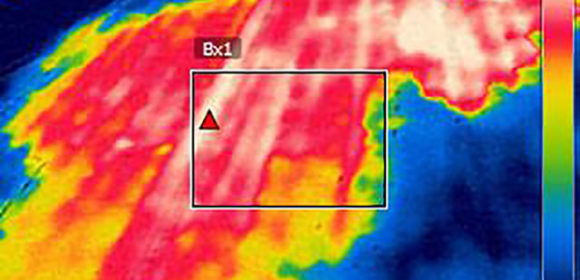Infrared Inspection Services
RFE’s IR evaluations include mechanical and electrical systems, as well as roof leak IR inspections, building envelope inspections, moisture intrusion, and energy efficiency IR surveys.
Our infrared inspections are conducted by Certified Infrared Thermographers. We have the knowledge and experience necessary to accurately identify and document a wide range of thermographic inspection requirements — locally, regionally and nationwide.
Infrared Inspection Services include:
Infrared Flat Roof Moisture Survey
Infrared Thermography detects moisture and identifies where it has become entrained (drawn into and transportable within a roof system) long before it breaks through and drips down a wall or onto a floor below.
Infrared Heat Loss Survey
Only thermal imaging gives precise visualization of temperature differences due to air infiltration (cold or warm air coming in), air exfiltration (warm or cool air escaping), and missing insulation and moisture — none of which can be seen with the human eye.
Infrared Building Envelope Survey
An Infrared Inspection can pinpoint problem areas before they are visible and more costly to repair. Moisture within walls, insulation or other building material may indicate leaking pipes, condensation issues or other problems leading to corrosion, mold and mildew.
Infrared Electrical System Survey
Infrared Inspections of electrical equipment identify excess heat on electrical apparatus and detect electrical issues such as loose connections, faulty fuses, defective breakers, damaged switches, overloaded or imbalanced circuits, and other problematic electrical conditions.
Infrared Mechanical System Survey
Temperature variations found during an Infrared Inspection will identify even the smallest of problems, subsequently averting unscheduled down time or catastrophic damage to mechanical components and machinery.
Photovoltaic (PV) System Inspections
PV Infrared Inspections of roof- or ground-mounted photovoltaic solar energy systems identify defective solar panels, loose combiner box wire connections, faulty fuses, defective breakers, damaged switches, overloaded or imbalanced circuits, and a myriad of other problematic electrical conditions.


